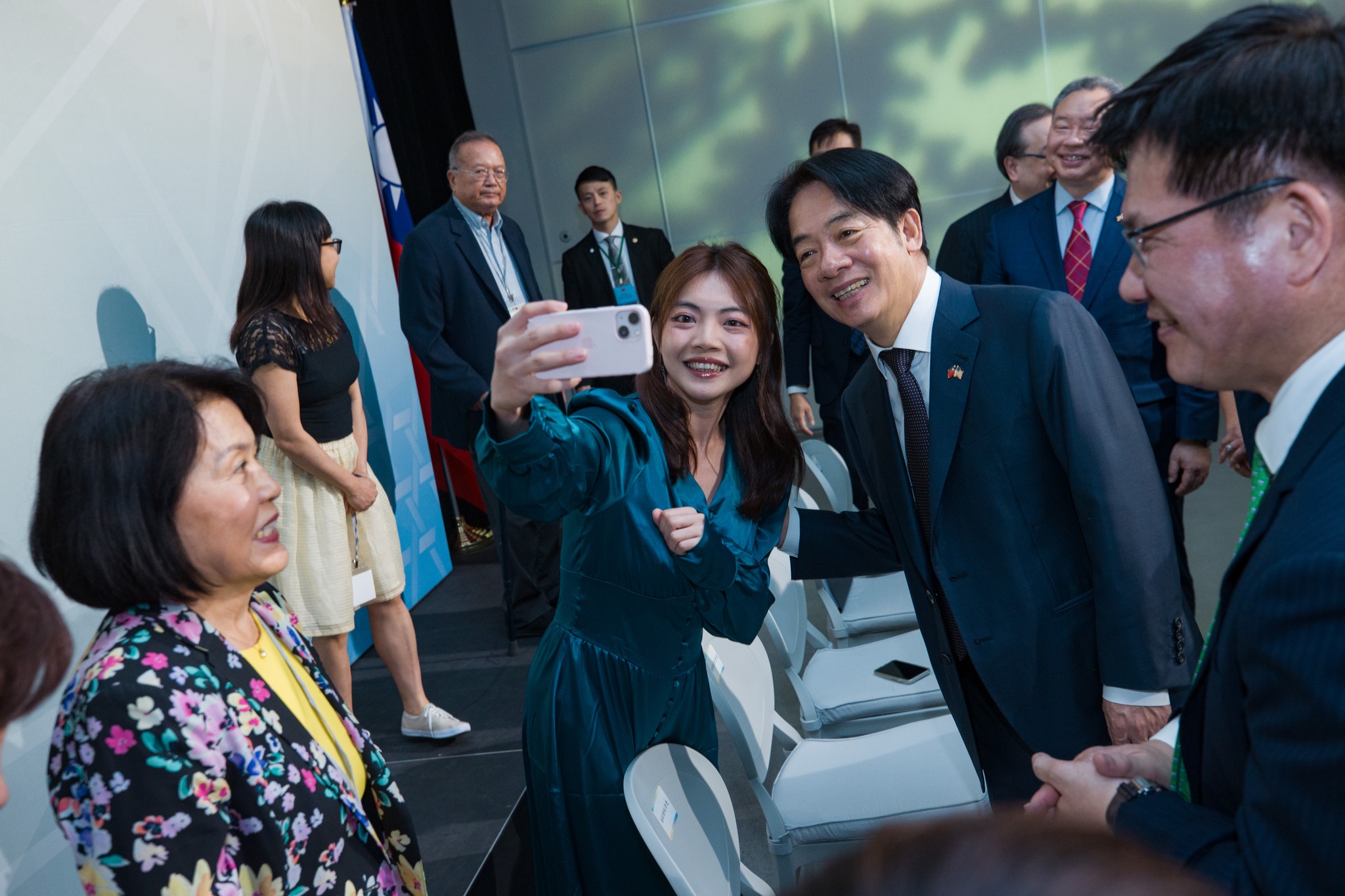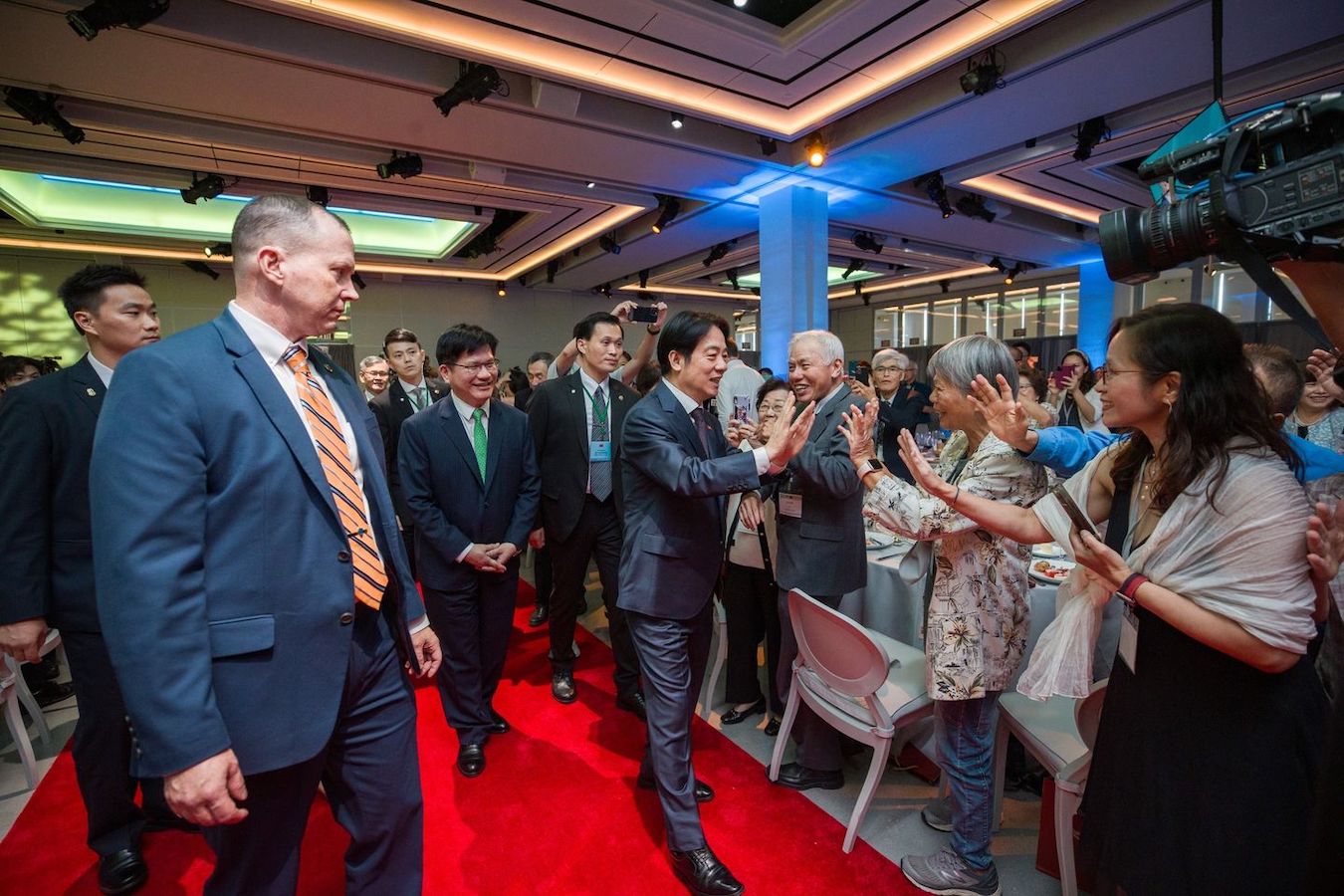by Brian Hioe
語言:
English
Photo Credit: William Lai/Facebook
CHINA ANNOUNCED a series of military exercises on Friday morning, which were slated to take place from 12 PM on Saturday until 4 PM today. This was to register displeasure with Vice President William Lai’s transit through the US.
Lai has been to the US before, having traveled there most recently in 2020 and 2022. But his current stopover in the US is of greater sensitivity because he is currently the DPP’s presidential candidate for 2024 elections.
Taiwanese presidents do not traditionally travel to the US, but make stopovers on the way to other destinations. This to avoid giving China any pretext for escalating tensions in the Taiwan Straits. So, too, with Lai’s travels to the US. Lai is ostensibly stopping over in the US on the way to attend the inauguration of Paraguayan president-elect Santiago Peña.
 William Lai in New York City. Photo credit: William Lai/Facebook
William Lai in New York City. Photo credit: William Lai/Facebook
To date, Lai has stopped in New York City so far. Lai will stop in San Francisco on his way back from Paraguay.
Lai’s New York City visit was largely uneventful. Members of the Taiwanese diaspora mobilized to demonstrate in support of him, as did some Chinese diaspora in the US, who called for opposing China’s attempts to annex Taiwan on an anti-war basis. There were, however, also some demonstrators against Lai from other segments of the Chinese diaspora, who by contrast framed Lai’s visit as provocative and stoking tensions.
During a speech at a banquet attended by members of the Taiwanese diaspora, Lai called for a strong stance against the encroachment on democracies by authoritarian regimes. But most of Lai’s events in New York were closed door.
It has been noted that the US and Taiwanese governments were likely hoping for a low-key visit by Lai. Taiwanese presidential candidates of both major political camps traditionally visit the US before elections. This is not only to meet with US government officials, sometimes termed a “job interview,” but to fundraise from wealthy members of the Taiwanese diaspora.
As such, it was necessary that Lai would have to visit the US. KMT presidential candidate Hou You-yi is expected to travel to the US in the fall, while TPP candidate Ko Wen-je visited the US in April. Foxconn Terry Gou, who is hinting at a run but has not formally announced one, traveled to the US last month as well as in April. Yet the attempt was generally to avoid being flashy, so China would not react.
Indeed, China’s reaction was also significantly lower key than the military exercises that took place after then-US Speaker of the House Nancy Pelosi’s visit to Taiwan last August. The reaction was also lower key than the military exercises that took place following the meeting between President Tsai Ing-wen and current US Speaker of the House Kevin McCarthy in April. The meeting took place in McCarthy’s home state of California rather than McCarthy visiting Taiwan, with reports that the Tsai administration talked McCarthy out of visiting Taiwan because of the possibility of a strong reaction from China.
This probably indicates that China, too, does not wish to escalate with the US over the issue of Taiwan at present. China likely hopes to observe how the Taiwanese elections play out before making any moves and it may aim to avoid upsetting its current delicate relationship with the US.
The more restrained nature of the exercises shows how China can dial up and back military tensions when needed. That being said, it was expected that China would conduct a set of military exercises before the January 2024 election to make its stances known and it used the Lai visit as a pretext for this to take place.
 Photo credit: William Lai/Facebook
Photo credit: William Lai/Facebook
To this extent, Chinese military threats continue to be a key substrate of cross-strait relations. The live-fire exercises that took place last August occurred shortly before November nine-in-one local elections and did not have a significant impact on the elections. Though the local elections resulted in a KMT win, the key issues at stake were largely domestic in nature, rather than about cross-strait relations, as is the case with local elections.
This may not be the case with presidential elections as next year’s, in which cross-strait issues come to the fore. As such, the CCP may have been cautious of giving the DPP ammo that it could use for elections through military exercises that provoke blowback from members of the Taiwanese public.
Either way, international media discourse has also been relatively restrained regarding China’s military exercises. Taiwan did not become a flashpoint of global media discourse as in April or last August. It is to be seen if other events lead to a greater focus on Taiwan, however.

